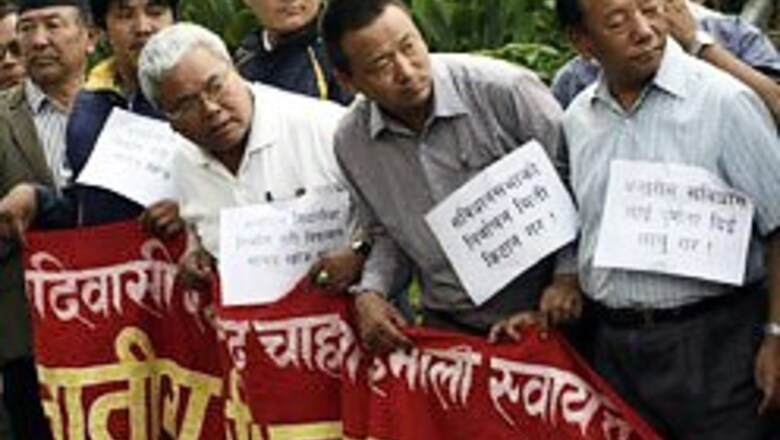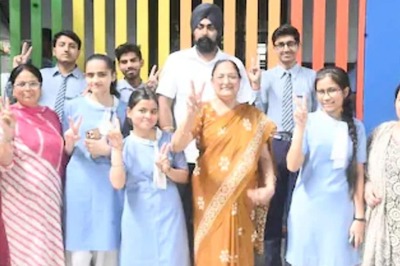
views
Kathmandu: Leaders of Nepal's ruling seven-party alliance and Maoist rebels began talks on Sunday in a bid to rescue a peace process stalled by differences over disarming the guerrillas and the future of the monarchy.
Prime Minister Girija Prasad Koirala and other party leaders formally met rebel chief Prachanda and top aides for the first time in nearly four months after the Maoist chief threatened to launch street protests if the talks were further delayed.
Officials said the talks, taking place in Koirala's high-security official residence in Kathmandu, would be held over the next few days. Outside the venue, about two dozen people held placards reading "Dissolve Parliament, create an interim legislature" and "Beware of foreign interference".
"We need patience," Koirala said on Friday. "Everything will be positive and we will try to find a solution to all problems." Nepal's interim government, formed after King Gyanendra restored democracy following mass protests in April, and the Maoists, who have been waging a deadly insurgency to topple the monarchy, have been in peace talks for nearly five months.
In June, they struck a power-sharing deal envisaging an interim constitution, a temporary Parliament and an interim Cabinet, including rebel participation, within a month. But none of these has yet been implemented.
"Yes, these matters are on the agenda. Leaders are expected to make a decision on them," one government negotiator said. The interim government, which the Maoists are expected to join, is to supervise elections to a special Assembly to draw up a new constitution, a key rebel condition to end their revolt.
"The government is wavering in implementing the deal," Prachanda said on Friday. "It is trying to avoid progressive change in the country."
Differences
The peace process has remained stuck over two key issues – management of arms held by the guerrillas and the future role of the monarchy in Nepal. The government wants the Maoists to disarm before elections are held for the special Assembly some time next year.
But the rebels say they are only willing to keep their arms and armies in their camps under UN supervision. On the monarchy, the rebels see no role for the King in the new government, but some political parties say the monarch should have a ceremonial role, pending a final decision by the Assembly.
Analysts said both sides were under pressure from the people to steer the peace process to a successful conclusion. "Activists of seven political parties and Maoists must put pressure on their leaders and stop them from snatching the smiles of the Nepalis," said Rajdhani, a Nepali daily, in an editorial.
Earlier talks with the Maoists collapsed in 2001 and 2003 as the then governments refused the key rebel demand for constituent Assembly elections.




















Comments
0 comment